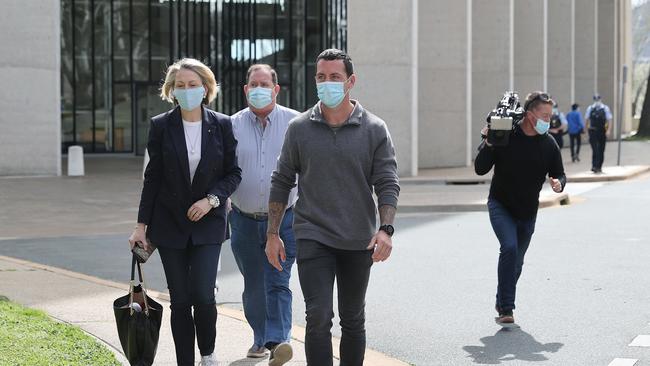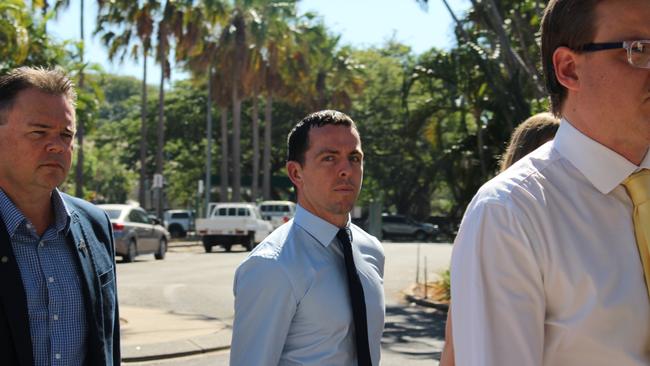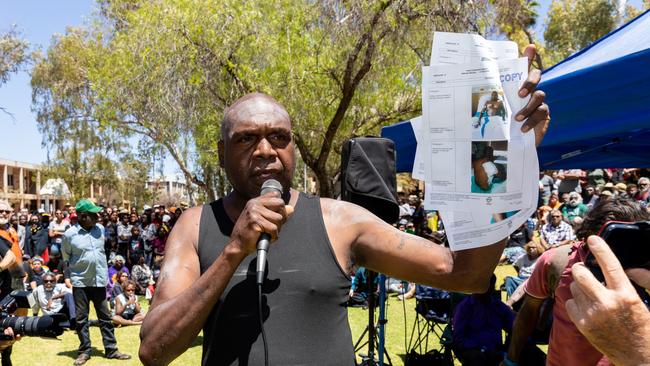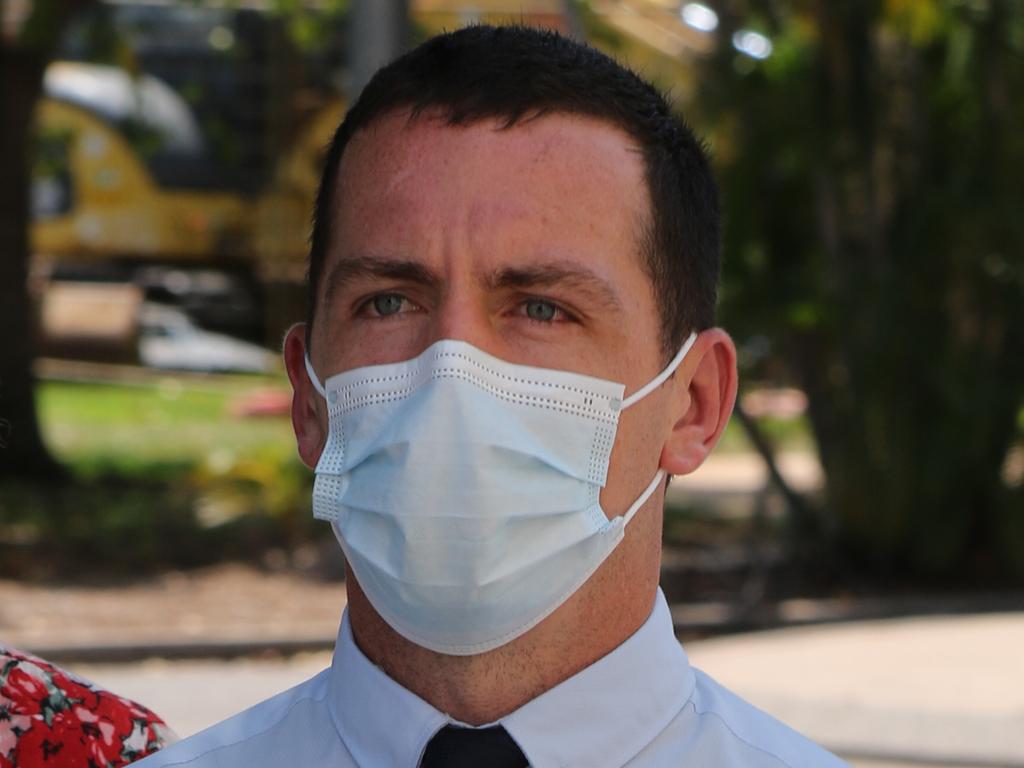High Court narrows ‘good faith’ defence in Kumanjayi Walker murder trial
The High Court has narrowed the defences available to Zachary Rolfe at his murder trial over the death of Kumunjayi Walker.

The nation’s highest court has narrowed the “good faith” defence available to Northern Territory police officer Zachary Rolfe at his upcoming murder trial over the fatal shooting of an Aboriginal teenager at Yuendumu in 2019.
The decision by the full bench of the High Court on Wednesday means that Constable Rolfe’s defence team can still argue the young police constable was acting in good faith when he shot Kumunjayi Walker during an arrest in the remote outback community but that they will have to prove that his actions were reasonable in the circumstances.
Likewise, the prosecution would have to persuade a jury that Constable Rolfe’s use of lethal force during the arrest was not reasonable or necessary in order to convict him.
“The exercise of the common law powers, like the statutory powers, is subject to constraints, such as doing only that which is reasonable and necessary,” the High Court said in its judgment.

Constable Rolfe has been charged with murder, but his trial was delayed at the eleventh hour to allow prosecutors to ask the High Court to throw out the good faith defence.
The Northern Territory Supreme Court had previously ruled Constable Rolfe could use the defence and be immune from prosecution if he was acting in good faith as a police officer.
But, in a unanimous decision, the High Court on Wednesday allowed the appeal, finding the Northern Territory Supreme Court had erred when it found the good faith defence applied under Section 5 of the Police Administration Act.
It said the “good faith” immunity should only apply to powers or functions “of a kind which may result in the commission of a crime or a civil wrong”.
They can still be argued under Section 25 and Section 124 of the Act, which relate to powers conferred on police officers and their powers of arrest.
“Section 5 does not confer those powers, whereas section 25 and section 124 do,” it said.
The full bench contrasted these policing powers with those that were “of a more general character and do not require any special authority”, such as maintaining social order or protecting property.
“True it is that powers such as those of prevention of offences and the apprehension of persons suspected of offences are intrinsically within the powers and functions of a police officer, as the respondent submits, but that is to say no more than that the common law recognises this to be the case,” the judgment reads.
“The common law and statutory powers are subject to constraints, such as doing only that which is reasonable and necessary.”
In granting special leave, the High Court said that while it was necessary to correct the NT court’s error, it would not do so in every case, “given the undesirability of fragmenting the ordinary course of criminal proceedings.”

Under NT law, if Constable Rolfe were to be acquitted using the good faith defence and the ruling was later found to be incorrect, he could not be retried.
Constable Rolfe’s defence lawyer, David Edwardson QC, on Wednesday told The Australian that the High Court judgment had not dealt a blow to his client’s case.
“The ‘good faith’ defence is alive and well and will be relied on at trial,” he said. “It is but one of three defences that will be advanced.”
The others are self defence and another in which police officers are not criminally responsible for an offence if their conduct is reasonable in the circumstances.
ACT Supreme Court judge Justice John Burns, who is retiring in March, will preside over the trial when it begins in Darwin on February 7.
“We’re looking forward to getting on with the trial without any further delays,” Mr Edwardson said.
Constable Rolfe and his family declined to comment on the High Court decision.





